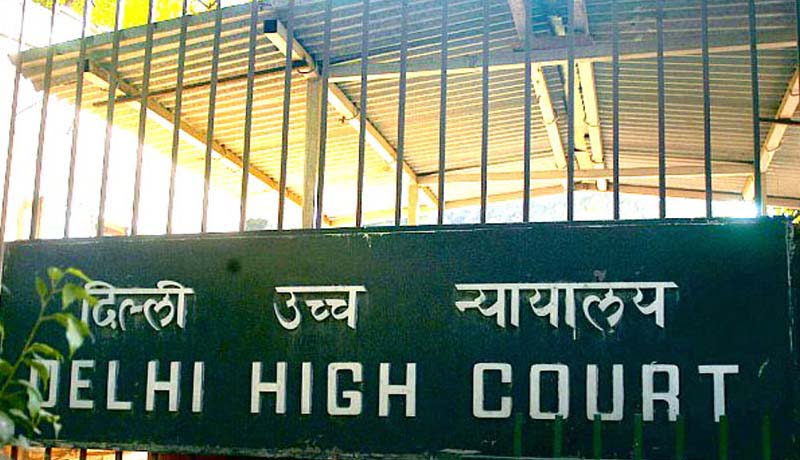A Company incorporated under Sikkim Companies Act liable for Income Tax under Income Tax Act, 1961, rules Delhi High Court

supply software-taxscan
supply software-taxscan
The Delhi High Court, on February 22, has made a landmark judgment that the income earned by a company incorporated in Sikkim (under the Companies Act of Sikkim), is liable to pay income tax under the Income Tax Act, 1961 for the income received by the Company outside Sikkim but within India prior to 1st April 1990.
The State of Sikkim enjoys a special status under Article 371-F of the Constitution of India. The Income Tax Act, 1961 is not applicable to the State of Sikkim and the income tax was to be charged and collected under the Sikkim State Income-tax Manual 1948 (Sikkim Manual 1948). The recovery of tax was under the scheme of the Sikkim (Collection of Taxes and Prevention of Evasion of Payment of Taxes) Act, 1987.
The respondents companies were incorporated under the Registration of Companies (Sikkim) Act, 1961 and was carrying on business in Sikkim and not elsewhere and that till 31st March, 1990, each of them were governed by the Sikkim Manual, 1948.The stand of the Assessees is that the income earned by them till that date was income earned in Sikkim from the business conducted done in Sikkim. The case of the Revenue, on the other hand, is that the control and management of each of the Assessee companies was wholly with their auditor, M/s. Rattan Gupta & Company, Chartered Accountants (CAs), who had their offices in Karol Bagh, New Delhi and, therefore, were companies resident in India in terms of Section 6 (3) of the Act.
On 15th March 1990 a search was conducted at the premises of M/s Rattan Gupta & Co. Chartered Accountant (‘CA’) at Daryaganj, New Delhi and during the course of the search books of account, check books, signed blank cheques, vouchers and other income documents of the Assessees, were found.Following the search, the Assistant Commissioner of Income Tax (ACIT) Circle 7, New Delhi, has issued a notice to the assessees as per section 148 of the Income Tax Act in respect of income earned by them during the AYs 1987-88, 1988-89 and 1989-90.Meanwhile, each of the Assessees filed returns of income in terms of the Sikkim Manual, 1948 for the three AYs in question on 27th April 1990. A demand notice was issued to each of them in respect thereof on 23rd July 1990.
The Assessees filed writ petitions in the High Court of Sikkim, challenging the notices issued under Section 148 of the Act.The court passed an interim order staying all further proceedings. Later, the order was modified and permitted the Income Tax Department to continue with the enquiry and seek facts and information from the Directors of the Assessee companies. In 1993, while deciding the case of Mansarovar Commercial Pvt Ltd case, the High Court dismissed all the writ petitions onground of lack of jurisdiction over matters occurred outside the territory of Sikkim. The High Court directed that the Department may conclude the proceedings and pass orders thereon, but the orders would not be given effect to unless permitted by the Court.
On 9th October 1998, separate assessment orders were passed by the ACIT, Company Circle 2 (2), New Delhi for each of the AYs 1987-88, 1988-89, 1989-90, in which it was concluded that each of the Assessees were “intentionally trying to take advantage of the prevailing laws at Sikkim by routing money through Sikkim and ploughing back in India.” The objections raised by the Assessees as to jurisdiction were rejected.
The Assessees then filed appeals before the Commissioner of Income Tax (Appeals) (CIT(A)). While confirming the additions made by the AO, the CIT (A) made an order to pay tax with interest and also affirmed disallowance of the sums paid by the Assessees on account of the State income tax. The Writ Petitions filed by the companies before the Delhi High Court was also dismissed.Later, the Income Tax Appellate Tribunal held that the AO has no jurisdiction to proceed with the assessments under section 148 since the notice was not duly served on the assessees.
Again, an appeal was filed to the High Court of New Delhi to decide the validity of the notice servind by the AO u/s 148 of the Act, to reconsider the order of the ITAT, the liability of the companies to pay income tax in India and the residential status of the assessee companies.
The Court while concluding held that the assessee companies are Indian Companies and are residents in India u/s 6(3)(ii) of the Actas the “control and management was wholly situated in India” and they are liable to pay income tax for the income accrued/ earned by themoutside Sikkim and within Indiaprior to 1st April 1990. Therefore, the Income Tax Department has jurisdiction over the assessees for the assessment of such income.The plea of the Assessees that the proceedings under Section 148 of the Act gets vitiated in the absence of a specific order vesting the ACIT with the powers under Section 127 of the Act to issue notice under Section 148 of the Act was also rejected.


